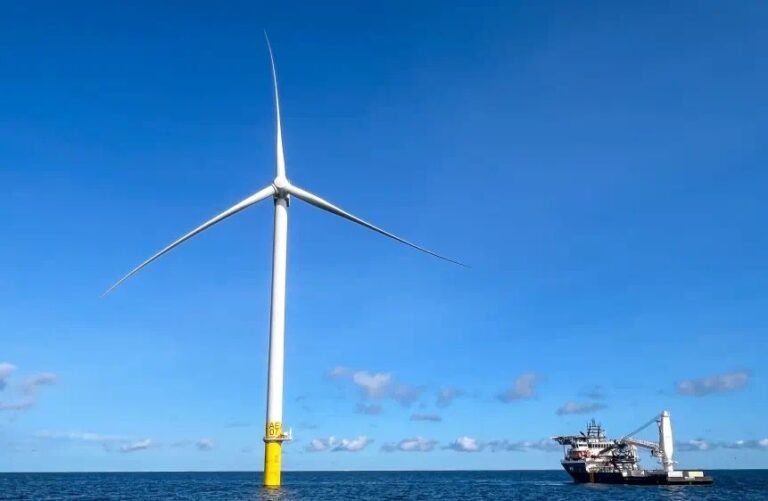Orsted A/S Faces Credit Downgrade Amid Financial Struggles
By William Mathis, Mark Chediak, and Ethan M Steinberg
Aug 14, 2025 (Bloomberg) — Orsted A/S, the Danish wind turbine maker, received a credit downgrade from S&P Global Ratings to the lowest tier of investment grade, following a $9 billion rights offering to bolster its finances. This move surprised analysts and investors alike, causing a stir in the market.
S&P’s decision was based on Orsted’s perceived “high-risk strategy” as the company faces challenges in completing wind farms on schedule and selling stakes in crucial projects, particularly in the US where regulatory hurdles have been raised by President Donald Trump’s administration. The stock price of Orsted plummeted by over a third, wiping out billions in market value, while the rights issue sparked criticism towards the Danish government for its financial commitment.
Despite Orsted’s successful track record in Europe, its ventures in the US have been riddled with supply chain disruptions and escalating costs, leading to the cancellation of major projects. The company’s inability to secure investments in US-based projects has further exacerbated its financial woes.
S&P’s downgrade of Orsted’s long-term issuer credit rating to BBB- highlighted concerns about the company’s growth strategy, project financing challenges, and the failure to divest a significant portion of its US-based assets. The rating agency also expressed reservations about the management’s handling of the evolving situation.
While Moody’s maintained Orsted’s long-term rating at Baa2, the company’s stock price experienced a sharp decline, reflecting investor unease. Orsted’s decision to raise funds through a stock sale was seen as a necessary step to stabilize its financial position.
Orsted’s reliance on selling stakes in its projects faced a setback due to the regulatory environment in the US under the Trump administration, which has hindered the company’s revenue projections. The inability to execute its asset disposal strategy has raised doubts about Orsted’s creditworthiness.
Lower credit ratings could lead to higher borrowing costs for Orsted, impacting its financial flexibility. Moody’s and Fitch Ratings still maintain Orsted’s debt at investment grade levels, but the risk of further downgrades looms large.
In conclusion, Orsted’s credit downgrade serves as a cautionary tale for companies operating in the renewable energy sector, highlighting the challenges of navigating regulatory uncertainties and financial risks in a rapidly evolving industry.
Subscribe for Daily Maritime Insights
Sign up for gCaptain’s newsletter and never miss an update
— trusted by our 108,552 members

